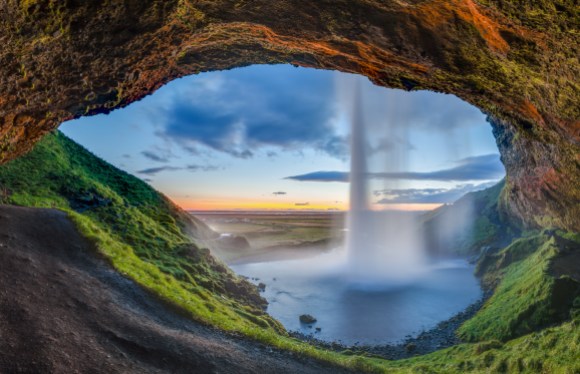
The Wikimedia Foundation’s mission is to enable everybody to freely share knowledge with others around the world. We don’t create the projects: you do. Thousands of volunteers write and edit content, contribute images, and more. Sometimes, we get requests from private parties or governments to provide information about these volunteers, or to add, remove, or change content on the Wikimedia projects. We work hard to defend user privacy and the freedom to contribute. So if these requests are inappropriate, or don’t meet our standards, we push back.
Twice a year, we publish our Transparency Report, providing details about the number of requests we received, their types and countries of origin, and other information. The report also includes an FAQ and stories about interesting requests. This newly-issued report covers information about requests we received between July and December 2016.
We report on five types of requests:
Content alteration and takedown requests. Wikimedia content is created and controlled by the volunteers who disseminate free knowledge on the projects. When governments, individuals, or companies contact the Foundation in an attempt to change project content, we encourage these requesters to discuss their questions and concerns with experienced project editors. In the last six months of 2016, we received 187 requests to alter or remove project content, and did not grant any of them. Two of these requests came from government entities.
Copyright takedown requests. Most content on the Wikimedia projects is freely licensed or in the public domain. Volunteers are mindful of copyright law, and work hard to keep copyrighted content off the projects. Sometimes, however, we receive Digital Millennium Copyright Act (DMCA) notices from copyright holders who claim that their work has appeared on the projects without their permission. We then evaluate whether or not the material is protected by copyright, if it appears on the projects under a fair use or other copyright exception, and other factors. Between July 1 and December 31, 2016, we received 12 DMCA notices. We granted four of these. Due to the diligence of Wikimedia volunteers, we receive a strikingly low number of DMCA notices compared with many other web platforms.
Right to erasure. In the second half of 2016, the Wikimedia Foundation received one request to remove information from the projects based on the right to erasure, also called the right to be forgotten. We did not grant the request. The right to erasure was established in the European Union by a 2014 Court of Justice of the European Union decision. It allows individuals to request that search engines delist certain pages from search results for their name. The Foundation has previously expressed our concerns about the right to erasure. We believe in a right to remember that protects everyone’s ability to receive and share information. In October 2016, we petitioned to intervene in a case that could expand delisting from EU domains to all domains worldwide. Despite the fact that the Wikimedia projects are not search engines, we do receive a small number of requests to delete information from the projects that cite the right to erasure as the basis for removal.
Requests for user data. Sometimes governments, or private organizations or individuals, submit requests for information about Wikimedia users. In the last six months of 2016, we received 13 such requests for nonpublic user data. These include both informal requests and more formal process, such as court orders or warrants. We do not disclose user data in response to a request that does not follow our Requests for User Information Procedures and Guidelines (which includes a provision for emergency conditions, as noted below). The legal team carefully evaluates each request for compliance with our policies and applicable law. During this reporting period, we disclosed information in response to one request.
Emergency disclosures. Under extraordinary circumstances, the Foundation may provide information to authorities in order to protect a user or other individuals from serious harm. Sometimes, volunteers will notice something troubling on the projects, and bring it to our attention: for example, if they discover a bomb threat, or comments suggesting that a user plans to commit suicide. In these rare circumstances, we may voluntarily provide information to the proper authorities in order to bring about a peaceful resolution. Additionally, we provide an emergency request procedure for law enforcement to seek information that may prevent imminent harm. From July to December 2016, we voluntarily disclosed information in 17 cases, and provided data in response to two emergency requests.
Our biannual Transparency Report is a window into the types of requests that the Wikimedia Foundation receives from people, governments, and businesses around the world. The Wikimedia movement values transparency, privacy, and freedom of expression, and this report is one of the ways in which we affirm our commitment to those principles, and to defending and supporting the hard work of Wikimedia contributors. We will continue to resist efforts to discover nonpublic information about our users, and will support the communities’ prerogative to determine project content. We invite you to read the entire Transparency Report to learn more about these efforts, and to our blog posts on the last five transparency reports for historical information.
Jim Buatti, Associate Counsel
Aeryn Palmer, Legal Counsel
This transparency report would not have been possible without assistance from various individuals, including Michelle Paulson, Jacob Rogers, Siddharth Parmar, James Alexander, Rachel Stallman, Ana Maria Acosta, Allison Davenport, Leighanna Mixter, Tarun Krishnakumar, and the entire Wikimedia Communications team.

Can you help us translate this article?
In order for this article to reach as many people as possible we would like your help. Can you translate this article to get the message out?
Start translation